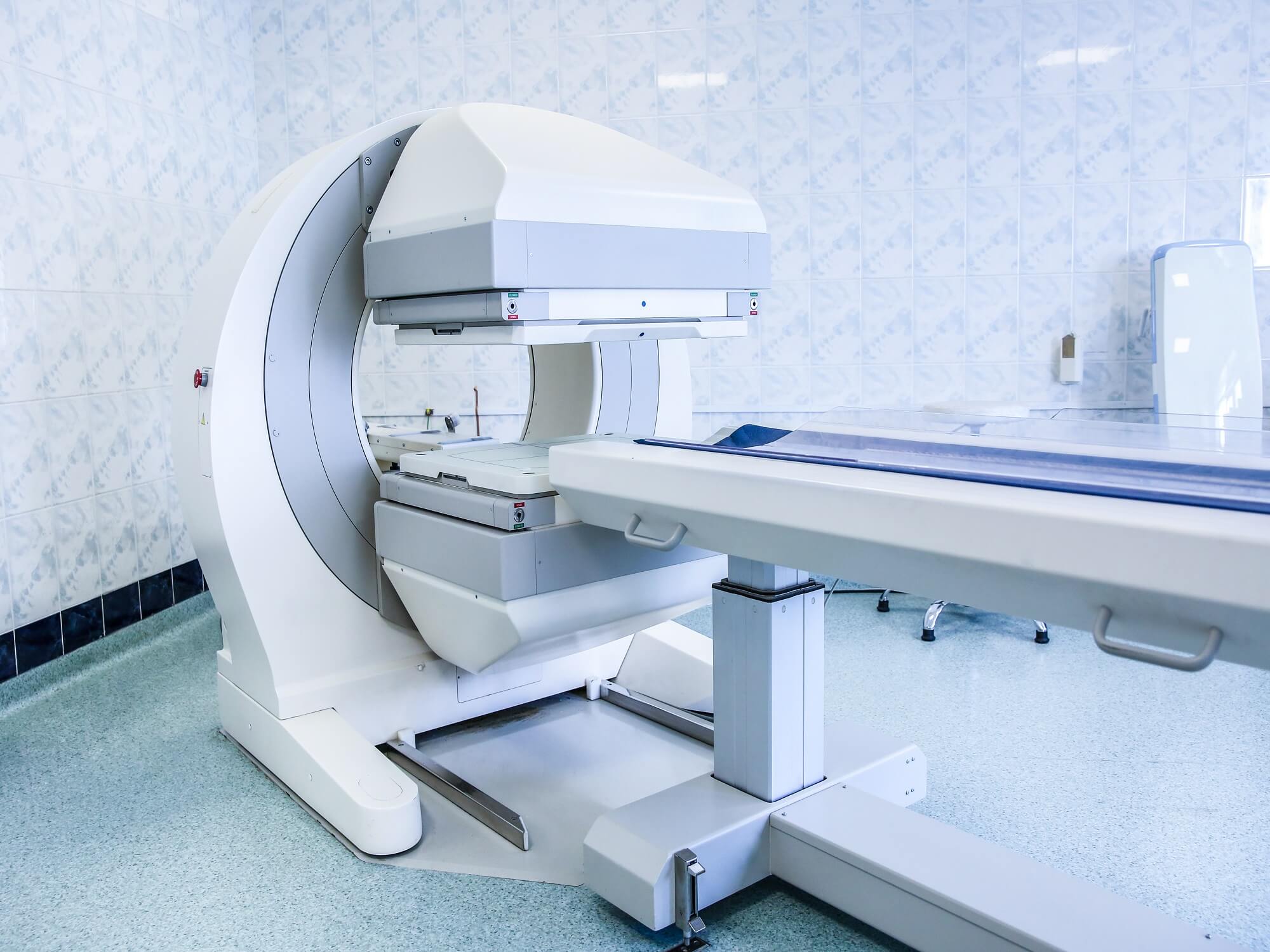Thyroid Scan and Uptake

-
Nuclear medicine is a branch of medical imaging that uses small amounts of radioactive material to diagnose and determine the severity of or treat a variety of diseases, including many types of cancers, heart disease, gastrointestinal, endocrine, neurological disorders and other abnormalities within the body. Because nuclear medicine procedures are able to pinpoint molecular activity within the body, they offer the potential to identify disease in its earliest stages as well as a patient’s immediate response to therapeutic interventions.
Nuclear medicine imaging procedures are noninvasive and, with the exception of intravenous injections, are usually painless medical tests that help physicians diagnose and evaluate medical conditions. These imaging scans use radioactive materials called radiopharmaceuticals or radiotracers.
-
Why should I do it ?
- The thyroid scan is used to determine the size, shape and position of the thyroid gland. The thyroid uptake is performed to evaluate the function of the gland. A whole-body thyroid scan is typically performed on people who have or had thyroid cancer.
-
A physician may perform these imaging tests to:
- determine if the gland is working properly
- help diagnose problems with the thyroid gland, such as an overactive thyroid gland, a condition called hyperthyroidism, cancer or other growths
- assess the nature of a nodule discovered in the gland
- detect areas of abnormality, such as lumps (nodules) or inflammation
- determine whether thyroid cancer has spread beyond the thyroid gland
- evaluate changes in the gland following medication use, surgery, radiotherapy or chemotherapy
-
Any preparations needed?
- Women should always inform their physician or technologist if there is any possibility that they are pregnant or if they are breastfeeding.
- You should inform your physician and the technologist performing your exam of any medications you are taking, including vitamins and herbal supplements. You should also inform them if you have any allergies and about recent illnesses or other medical conditions.
- Jewelry and other metallic accessories should be left at home if possible, or removed prior to the exam because they may interfere with the procedure.
- In some instances, certain medications or procedures may interfere with the examination ordered
- You should avoid caffeine (caffeinated as well as decaffeinated coffee, hot and cold tea, caffeinated soft drinks and energy drinks, etc.) and smoking for up to 48 hours before your examination.